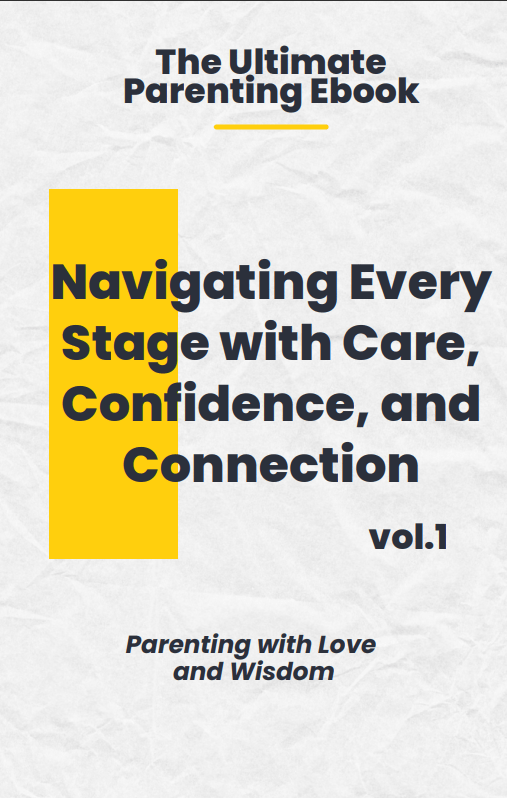Understand the pre-kindergarten age and its importance. Our article covers state-by-state requirements and tips for parents.

Why knowing the pre-kindergarten age is such a vital step? The initial years of a child’s life are profoundly influential. During this time, their brains are like sponges, absorbing everything around them.
Psychologically, early childhood education sets the foundation for future learning, social skills, and emotional well-being. Imagine your child stepping into a classroom, eyes wide with curiosity, ready to make new friends and discover the world around them. This is the magic of pre-kindergarten.
Children who attend pre-kindergarten are more likely to excel academically and socially in later years. They develop critical thinking skills, emotional regulation, and social competencies that set them apart. As a parent, investing in pre-kindergarten is investing in your child’s future success.
In This Blog
ToggleWhat is the Pre-Kindergarten Age?
What exactly does the pre-kindergarten age mean? Pre-kindergarten age generally refers to the age at which children are eligible to start pre-kindergarten programs. These programs are designed to prepare children for kindergarten, focusing on social, emotional, and basic academic skills.

The pre-kindergarten age varies significantly from state to state, and understanding these differences can help you make informed decisions for your child’s education.
State-by-State Breakdown of Pre-Kindergarten Age
Here’s where it gets interesting. The pre-kindergarten age is not uniform across the United States. Each state has its own regulations, reflecting diverse educational philosophies and legislative frameworks.

Let’s examine some of the primary distinctions more closely:
1. California
In California, the pre-kindergarten age generally starts at four years old. The state offers Transitional Kindergarten (TK) programs for children who turn five between September 2 and December 2, bridging the gap between preschool and kindergarten.
For instance, if your child’s birthday is on October 15, they would be eligible for TK, giving them an extra year to develop crucial skills before entering kindergarten.
2. Texas
Texas provides pre-kindergarten programs for children who are at least four years old by September 1. The state also offers eligibility criteria based on language proficiency, socioeconomic status, and military family status.
For example, if your family is economically disadvantaged or if your child has limited English proficiency, they may qualify for free pre-kindergarten, ensuring they get the early start they need.
3. New York
In New York, children can begin pre-kindergarten at four years old. The state’s Universal Pre-Kindergarten (UPK) program aims to provide free pre-kindergarten education to all eligible children.
For example, in New York City, the UPK program is available to all four-year-olds, regardless of family income, offering a significant advantage for families across the city.
4. Florida
Florida’s Voluntary Pre-Kindergarten (VPK) Education Program is available to children who turn four by September 1. The program emphasizes literacy skills, preparing children for kindergarten.
If you live in Florida, enrolling your child in the VPK program can provide them with a strong foundation in reading and writing before they enter kindergarten.
5. Illinois
Illinois offers pre-kindergarten programs for children aged three to five, with a focus on at-risk populations to ensure all children have access to early education.
For instance, the state prioritizes children from low-income families or those who may be at risk of academic failure, providing them with crucial early learning opportunities.
6. Ohio
In Ohio, pre-kindergarten age starts at four years old. The state provides publicly funded programs aimed at preparing children for kindergarten success.
Ohio’s Early Childhood Education (ECE) Grant program supports children from low-income families, helping bridge the educational gap and ensuring all children have a strong start.
7. Rhode Island and Delaware
Smaller states like Rhode Island and Delaware typically start pre-kindergarten at four years old, similar to the broader national trend.
These states often provide universal pre-kindergarten programs, ensuring that all children, regardless of background, have access to early education.
Factors Influencing Pre-Kindergarten Age
Why do these differences exist? The pre-kindergarten age in each state is influenced by a variety of factors:

1. Legislative and Educational Policies
State legislation plays a significant role in determining pre-kindergarten age. Policies around funding, curriculum standards, and educational priorities all impact when children can start pre-kindergarten.
For example, California’s introduction of Transitional Kindergarten reflects a legislative effort to address developmental readiness in young children. These policies are often influenced by research on child development and educational outcomes, aiming to optimize the timing for starting school.
2. Socioeconomic and Cultural Factors
Socioeconomic status can affect when children start pre-kindergarten. In states with higher income inequality, access to early education may vary significantly. Cultural attitudes towards education also influence the pre-kindergarten age.
In some communities, starting education early is highly valued, while others may prioritize extended family care during the early years. For example, in more rural areas, families might rely on multi-generational households for child-rearing, delaying formal education until later.
Implications for Parents and Educators
As a parent, navigating the pre-kindergarten age requirements can be daunting, but it’s essential to ensure your child gets the best start. Here are some suggestions to assist you on your journey:
1. Understand State-Specific Requirements
Each state has its own pre-kindergarten age requirements. Take the time to research the specific regulations in your state. Websites of state education departments are a great resource for accurate information.
For example, visiting the California Department of Education’s website can provide you with detailed information on the Transitional Kindergarten program.
2. Prepare Your Child Emotionally and Socially
Pre-kindergarten is not just about academic readiness; it’s also about social and emotional development. Encourage your child to engage in playgroups, read books together, and discuss what school will be like to ease the transition.
For instance, role-playing school scenarios at home can help your child feel more comfortable and excited about starting pre-kindergarten.
3. Engage with Educators
Teachers and school administrators can provide valuable insights into pre-kindergarten programs. Don’t hesitate to reach out to them with questions about curriculum, readiness, and how you can support your child’s learning at home.
For example, attending parent-teacher meetings and volunteering in the classroom can give you a better understanding of your child’s progress and how to support their learning journey.
For educators, accommodating diverse pre-kindergarten age groups requires flexibility and understanding. Differentiated instruction can help address the varying developmental stages within a classroom, ensuring all children receive the support they need.
Psychological and Developmental Considerations
From a psychological perspective, the pre-kindergarten age is a critical period for development. At this age, children are developing their sense of identity, learning to navigate social relationships, and building foundational skills for future academic success.

Here’s how you can assist your child during this period:
1. Encourage Independence
Pre-kindergarten is a time for children to learn independence. Simple tasks like dressing themselves, packing their bags, and managing personal hygiene can build confidence and self-reliance.
For example, letting your child choose their clothes and dress themselves can foster a sense of independence and responsibility.
2. Foster Emotional Resilience
Help your child understand and manage their emotions. Discussing feelings, practicing mindfulness, and providing a stable and loving environment can strengthen their emotional resilience.
For instance, reading books about emotions and discussing the characters’ feelings can help your child learn to recognize and express their own emotions.
3. Promote Curiosity and Learning
Cultivate a love for learning by exploring new topics, visiting museums, reading diverse books, and encouraging questions. A curious mind is a hallmark of lifelong learners.
For example, taking your child to a science museum and exploring exhibits together can spark their curiosity and interest in learning.
Conclusion
Understanding the pre-kindergarten age across different states is crucial for parents and educators alike. By knowing when and how to start this important educational journey, you can provide your child with the best foundation for future success. Remember, the pre-kindergarten age is more than just a number—it’s about preparing your child for the world of learning and discovery.
We hope this comprehensive guide has helped clarify the pre-kindergarten age in various states. If you have any questions or personal experiences to share, we’d love to hear from you. Please share your thoughts in the comments below and join the discussion.
Share this blog with other parents who might find it helpful, and don’t forget to comment with your thoughts and experiences.
You may also be interested in : Top 19 Parenting Mistakes That Could Ruin Your Child




